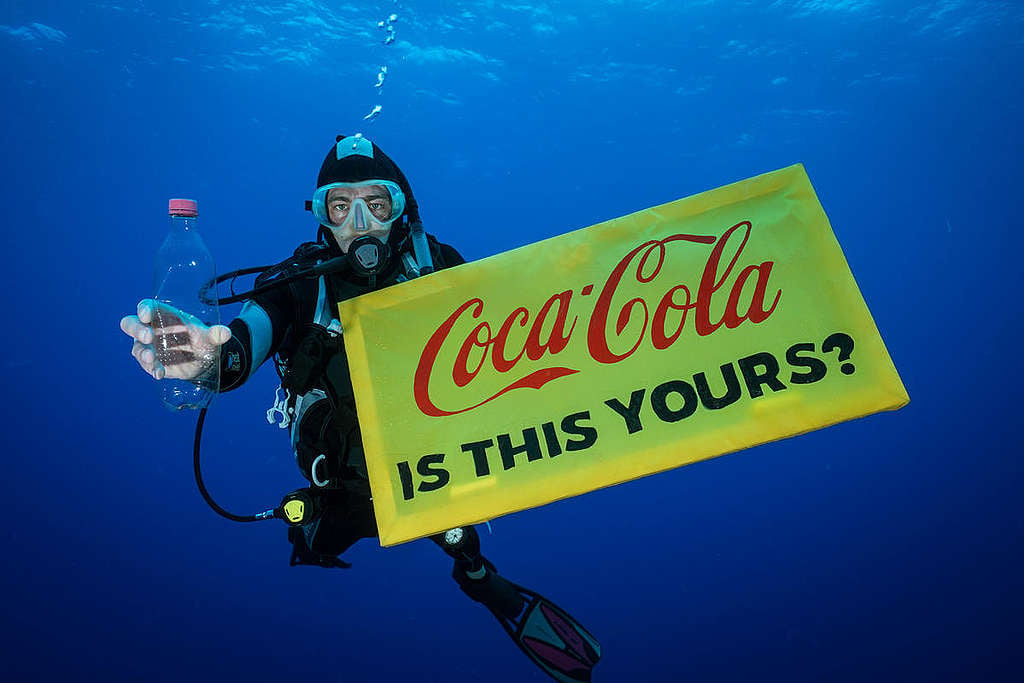In 2021, Coca-Cola had approximately 4 billion refillable plastic bottles and 25 billion refillable glass bottles in circulation. These numbers have remained virtually unchanged despite its pledge to increase refill and reuse by 25% by 2030, while the company has increased its production of single-use bottles by over 9 billion, from 125 billion in 2021 to 134 billion in 2022.

In response to Coca-Cola’s 2022 Business and Sustainability Report, senior oceans campaigner Lisa Ramsden says, “Coca-Cola says they want to help tackle the plastic waste crisis, but then they continue to increase the amount of plastic they use, year after year. As they continue to use more single-use plastic, the numbers of refillable bottles they have in circulation stay the same. This is exactly why we need a strong Global Plastics Treaty – corporations will never change their harmful, polluting ways unless they are forced to.”
In 2021, Coca-Cola had approximately 4 billion refillable plastic bottles and 25 billion refillable glass bottles in circulation.
These numbers have remained virtually unchanged despite its pledge to increase refill and reuse by 25% by 2030, while the company has increased its production of single-use bottles by over 9 billion, from 125 billion in 2021 to 134 billion in 2022.
The company announced another year of billion-dollar profits at its recent annual general meeting, where it presented its sustainability report. The cost of plastic pollution on our environment and communities is estimated to be about $100 billion per year, according to the Minderoo Foundation.
Plastic pollutes through its entire lifecycle, from extraction as fossil fuels to disposal. Frontline communities where refineries and production facilities are located, predominantly black and brown communities, face increased health risks such as cancer.

Call on the NZ Government to ban unnecessary single-use plastic bottles* in NZ, and to incentivise reusable and refillable alternatives.
